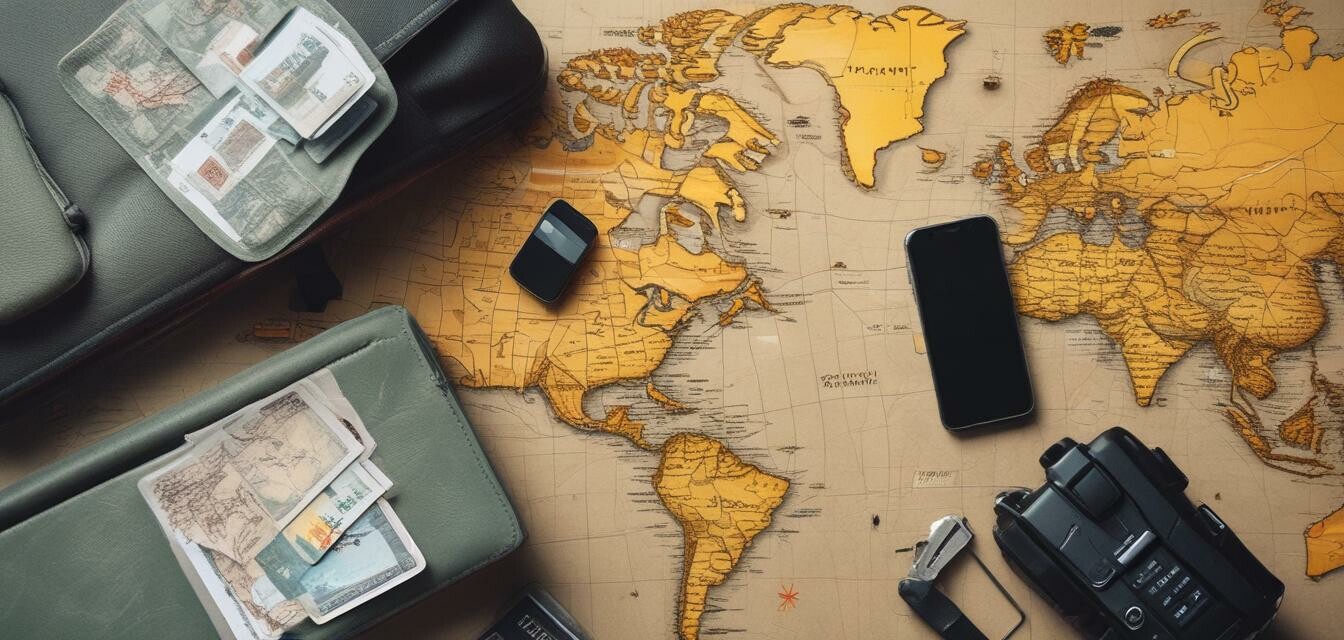
SIM Card Safety Tips for Travelers
Key Takeaways
- Keep your SIM cards and related items organized and secure.
- Use protective cases to prevent damage and loss.
- Digitally back up important numbers and configurations.
- Be cautious in public places to prevent theft.
- Understand the local laws regarding SIM card usage in different countries.
Traveling can be a thrilling experience, but keeping your SIM card secure should be a top priority. Whether you're navigating new cities or staying connected with loved ones, a safe SIM card is essential. In this article, we will share practical tips on how to protect your SIM card while traveling to ensure hassle-free connectivity throughout your journey.
Why SIM Card Safety Matters
Your SIM card is the gateway to your mobile service, holding vital information that connects you to your mobile network. Losing it or having it stolen can lead to:
- Inability to make calls or use data services.
- Unnecessary charges related to unauthorized use.
- Loss of personal data, contacts, and vital numbers linked to your account.
Protecting Your SIM Card
Here are several tips to help you protect your SIM card:
1. Use a SIM card case
An organized SIM card case can help you keep your SIM cards secure and accessible. These cases prevent loss and damage while allowing you to store multiple cards neatly. Choose a durable design that can withstand the rigors of travel.
2. Keep your cards separate
3. Digitally back up important information
Before you travel, take a moment to back up crucial phone numbers, contacts, and configurations associated with your SIM card. This way, if something happens, you'll have a copy of your essential information:
- Save contacts to cloud storage.
- Keep a digital copy of your SIM card purchases and account information.
- Document phone settings for easy restoration.
4. Be cautious in public spaces
Be aware of your surroundings, especially in crowded areas where pickpockets might operate. Consider using anti-theft bags or money belts for added security.
5. Know local regulations
Before arriving at your destination, research local laws and regulations regarding SIM cards and mobile usage. This can help you avoid fines and ensure compliance with the local authorities.
SIM Card Storage Options
When choosing a storage method for your SIM cards, consider these options:
| Storage Option | Description | Pros | Cons |
|---|---|---|---|
| SIM Card Case | A compact, organized case designed specifically for storing SIM cards. | Easy access, organized, and protective. | May be lost if not carefully stored. |
| Wallet | A traditional wallet with slots for cards. | Convenient if you always carry your wallet. | Can be bulky and may not protect cards from damage. |
| Metal Key Chain Holder | A holder that attaches to a keychain for easy access. | Always on you, less chance of losing. | Can be misplaced if the keychain is lost. |
How to Manage Connectivity while Traveling
Card management plays a vital role in maintaining connectivity while traveling. Consider these tips:
- Check compatibility: Ensure that your phone is compatible with the local network and your SIM card.
- Plan your data usage: Avoid unnecessary charges by managing your data effectively.
- Switch SIM cards properly: Learn how to switch between cards seamlessly to retain connectivity.
Useful Accessories for Travelers
Here are some essential accessories that can enhance your travel experience:
- SIM card adapters to switch between different types of SIMs.
- Signal boosters to improve connectivity in remote areas.
- Dual SIM phones for easier management of two numbers and connections.
In Conclusion
Having a safe and organized approach to your SIM card while traveling can alleviate many potential issues. By following these tips, you can ensure that your connectivity remains uninterrupted, allowing you to enjoy your journey to the fullest. Don't forget the importance of storing your SIM cards safely, being aware of your surroundings, and staying informed on local regulations for a smooth travel experience.
Pros
- Ensures team communication on travels.
- Prevents data overages and unnecessary charges.
- Helps maintain contact with family and friends.
Cons
- Requires initial setup and planning.
- Risk of theft in crowded areas.
- May encounter network issues in remote locations.